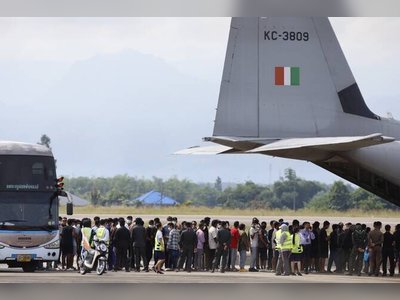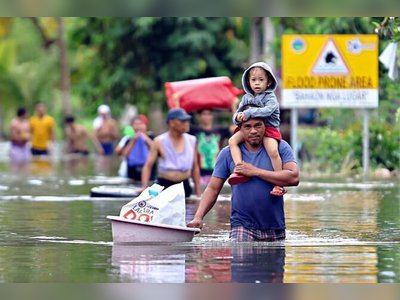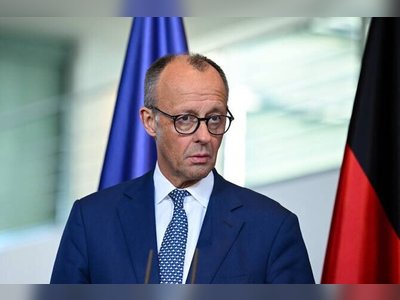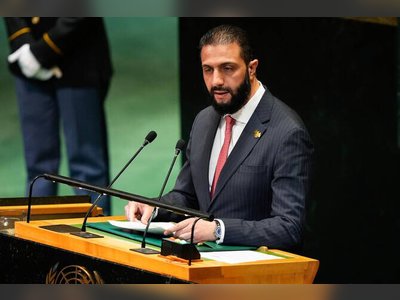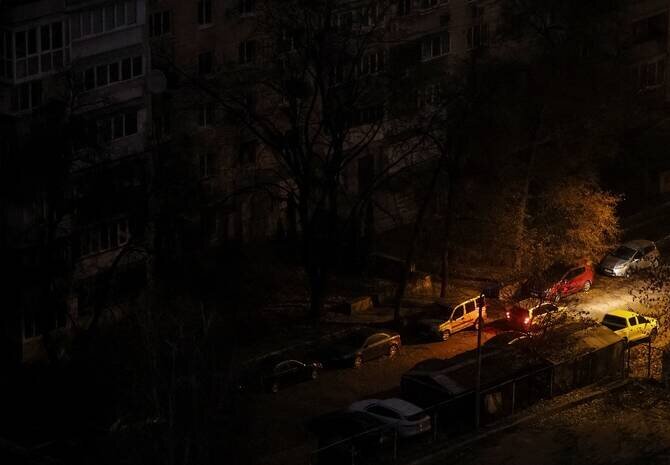
Ukraine Scrambles for Energy as Power Generation Plummets to 'Zero'
Russian attacks target Ukraine's energy infrastructure, causing significant power outages and heating disruptions.
KYIV: Ukraine is working to restore electricity and heat supplies after Russian strikes against its energy facilities reduced the nation's power generation capacity to zero.
The attacks, which began overnight into Saturday, affected numerous cities by disrupting electricity, heating, and water services.
State power firm Centerenergo reported that generating capacity has been completely halted.
In response to these disruptions, Ukrenergo stated that power cuts of eight to 16 hours per day are expected across most Ukrainian regions on Sunday as repairs and energy diversification efforts progress.
Although conditions have somewhat stabilized, ongoing power shortages remain a concern for cities such as Kyiv, Dnipropetrovsk, Donetsk, Kharkiv, Poltava, Chernigiv, and Sumy.
Ukraine's Energy Minister, Svitlana Grynchuk, highlighted the severity of these attacks, emphasizing that the enemy has launched an unprecedented number of strikes targeting energy facilities since the invasion began.
Russian drones specifically targeted nuclear power substations in western Ukraine, endangering European nuclear safety, according to Kyiv's Foreign Minister Andrii Sybiha.
He called for an emergency meeting of the International Atomic Energy Agency (IAEA) to address these risks.
Experts fear that these attacks could lead to heating shortages as winter approaches, given their impact on power and heating infrastructure.
Since the beginning of the invasion, Russia has consistently targeted Ukraine's energy grid, with nine major attacks since early October.
The Kyiv School of Economics estimates that half of Ukraine's natural gas production has been shut down due to these assaults.
In response to Russian aggression, Ukraine has escalated its counterattacks on Russian oil depots and refineries in recent months.
These actions aim to disrupt Moscow's energy exports and trigger fuel shortages within Russia itself.
The attacks, which began overnight into Saturday, affected numerous cities by disrupting electricity, heating, and water services.
State power firm Centerenergo reported that generating capacity has been completely halted.
In response to these disruptions, Ukrenergo stated that power cuts of eight to 16 hours per day are expected across most Ukrainian regions on Sunday as repairs and energy diversification efforts progress.
Although conditions have somewhat stabilized, ongoing power shortages remain a concern for cities such as Kyiv, Dnipropetrovsk, Donetsk, Kharkiv, Poltava, Chernigiv, and Sumy.
Ukraine's Energy Minister, Svitlana Grynchuk, highlighted the severity of these attacks, emphasizing that the enemy has launched an unprecedented number of strikes targeting energy facilities since the invasion began.
Russian drones specifically targeted nuclear power substations in western Ukraine, endangering European nuclear safety, according to Kyiv's Foreign Minister Andrii Sybiha.
He called for an emergency meeting of the International Atomic Energy Agency (IAEA) to address these risks.
Experts fear that these attacks could lead to heating shortages as winter approaches, given their impact on power and heating infrastructure.
Since the beginning of the invasion, Russia has consistently targeted Ukraine's energy grid, with nine major attacks since early October.
The Kyiv School of Economics estimates that half of Ukraine's natural gas production has been shut down due to these assaults.
In response to Russian aggression, Ukraine has escalated its counterattacks on Russian oil depots and refineries in recent months.
These actions aim to disrupt Moscow's energy exports and trigger fuel shortages within Russia itself.
